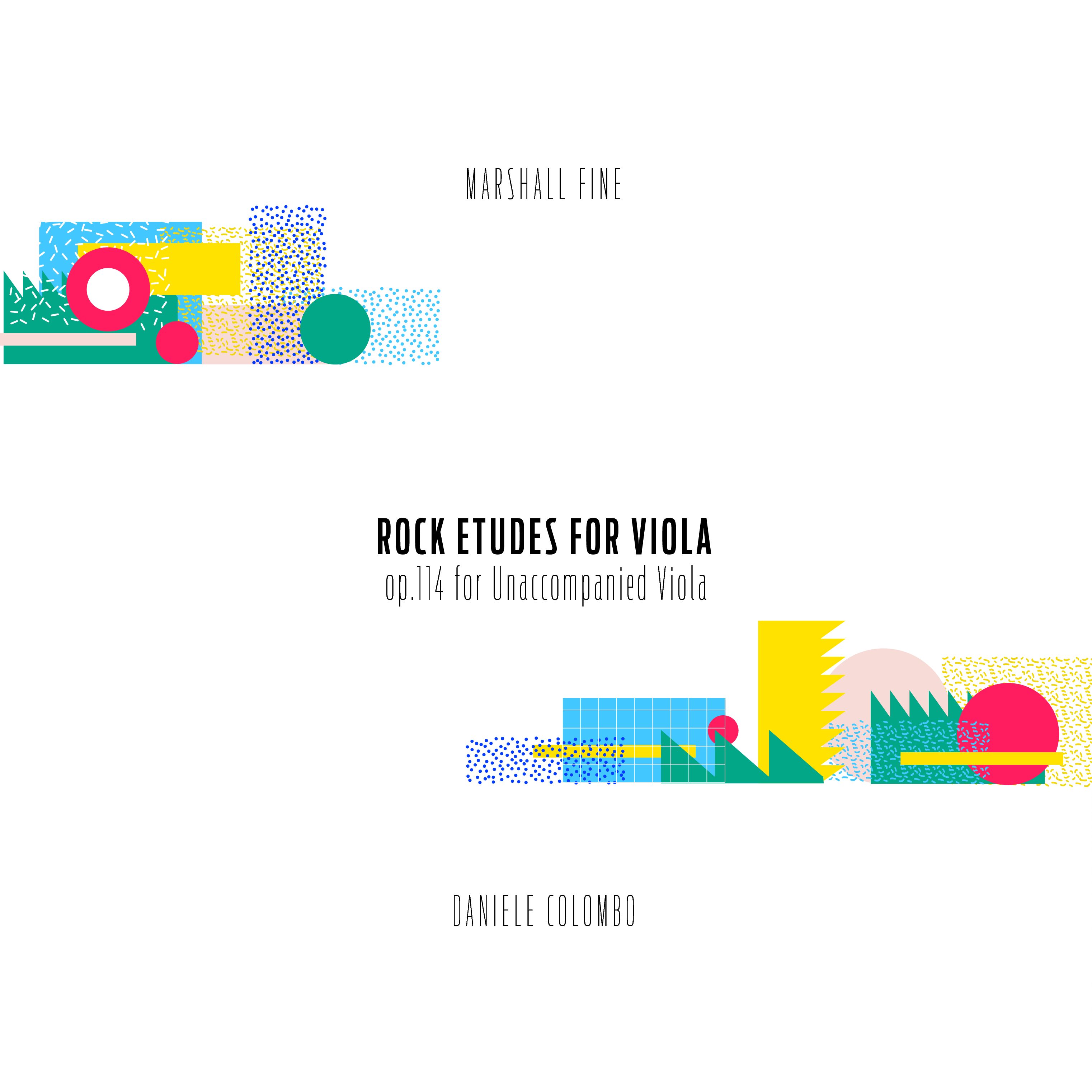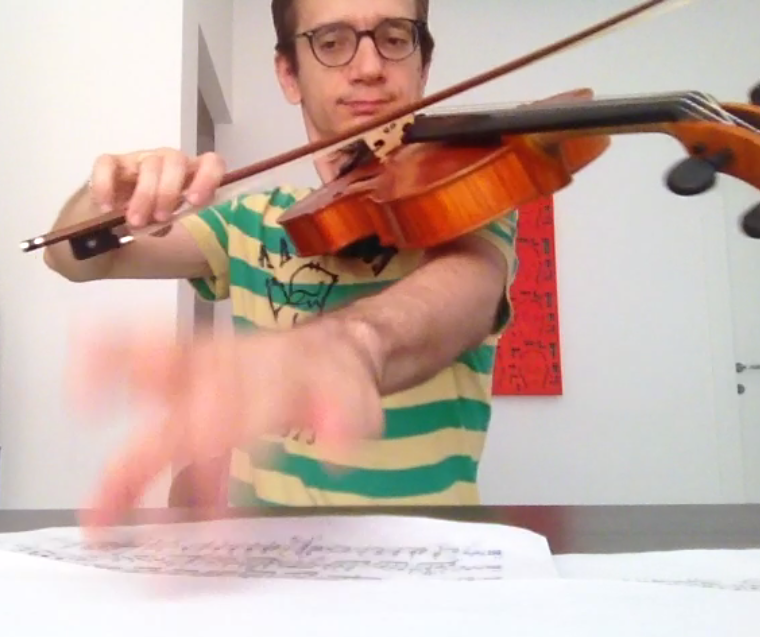ROCK ETUDES, op. 114
(written between 2007-2009)
1. Big Hunk of Love. Elvis Presley’s original strophic form (6 verses) is compressed into a small rondo form, of which the second episode is expanded and made to modulate down by minor thirds. (C major)
2. The Crystal Ship. The Doors’ original ABA form is retained, but the middle section is expanded and modulates upward through A minor and C-sharp minor. (F minor)
3. I’m Your Puppet. The song is redone entirely in pizzicato, with back-and-forth strumming, left-hand pizzicato, and even rasgueado included. Its break section is repeated and expanded into a four-voice fugato. (B-flat major)
4. Midnight at the Oasis. I compressed this song into a brief study in bowing dexterity, transforming the chorus into the middle section of an ABA form. (E-flat major)
5. Black Hole Sun. I actually combines Soundgarden’s hit (expressing my own depressed state) with a double-time middle section based on the TV cartoon series Space Ghost (whose power bands were said to draw energy from black holes). The texture recalls somewhat the Prelude from the Bach Cello Suite #4, with a wealth of polyphonic voicing. (A-flat major)
6. Sunshine Superman. Donovan Leitch’s early hit is converted into a study in legato playing, written out in two canonic voices. In the middle section it abruptly changes style and indulges one of my favorite devices, developing Donovan’s theme by interval expansion. (C-sharp major)
7. Immigrant Song. This is my satiric reply to a snub by the Boston Symphony Orchestra (judging by its subtitle “Die Ansell-Ausfall”). The original strophic form is overhauled into a sonata-form seething with fury from Shostakovichian intonations and quotes from the audition repertoire which are violently disfigured and marked with sarcastic interpretive directions such as antibrahminoso, telemaikovskiando, and estatenotturnospasmiando. (F-sharp minor)
8. Sixteen Tons. Tennessee Ernie Ford’s hit is converted into a phantasmal scherzo and trio, a study in spiccato and jeté bowing. Its trio is actually based very loosely on Napoleon XIV’s “talked” hit They’re Coming to Take Me Away. Could this combination of themes reflect my denunciation of society driving people insane. (B minor)
9. Sympathy for the Devil. The Rolling Stones hit, instead of remaining in E, is converted into a moto-perpetuo that cycles through the keys, a modulation accomplished by a bridging tone-row itself designed to modulate along the circle of fifths. This is undoubtedly the most outrageously difficult etude of the cycle. I’m not saying who my “devil” is, but I obviously have no sympathy for him here. (E major)
10. My God. This may be my official declaration of atheism. I made over Jethro Tull’s original and complex song-form into a fully worked-out sonata-form, in which the chorus serves as second theme, and the bariolage figures from the opening guitar solo are developed and expanded. (A minor)
11. Ohio. It was made for (and played privately at) the reunion of a select group from the Devereux School, where I attended Jr. High School and High School. I gave the public premiere, as a solo dance piece with choreography by Memphis dance teacher Karen Zissoff, on December 12, 2008. Ohio was my response to 9/11 and the ensuing Iraq-Afghan war I have changed the climactic words of the song (in my mind) to “All dead in Babylon.” As in My God, I converted the chorus into the second theme of a sonata form, and included a fully worked-out fugue on Neil Young’s theme in the development section. (D minor)
12. Wonder-Variations (Passacaglia and Fugue) is by far the most radical transformation of a song in the cycle. It is an immense structure of 26 variations on the chorus of Stevie Wonder’s Livin’ For the City. I was thinking along the lines of the Hindemith op. 31 #4 or the final passacaglia of op. 11 #5 final passacaglia. It is in five sections (the second in strict inversion) and includes a fugue and cyclic recalls of most of the earlier etudes. The verse of Wonder’s song (set in counterpoint to the theme) is retained as coda. (G major)
MARSHALL FINE



